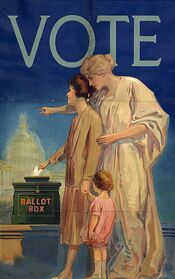South Carolina 2016 ballot measures
Presidential • U.S. Senate • U.S. House • State Senate • State House • Local judges • State ballot measures • School boards • Candidate ballot access |
| 2016 South Carolina Ballot Measures | |
|---|---|
2018 »
« 2014
| |
| 2016 U.S. State Ballot Measures | |
|---|---|
2017 »
« 2015
| |
 | |
| Overview | |
| Election results | |
| Scorecard | |
| Tuesday Count | |
| Lawsuits | |
| Deadlines | |
| Voter guides | |
| Initiatives filed | |
| Year-end analysis | |
| Part 2: Campaigns | |
| Polls | |
| Media editorials | |
| Part 3: Finances | |
| Contributions | |
| Signature costs | |
| Ballot Measure Monthly | |
| Signature requirements | |
Have you subscribed yet?
Join the hundreds of thousands of readers trusting Ballotpedia to keep them up to date with the latest political news. Sign up for the Daily Brew.
| |
Zero ballot measures were certified to appear on the South Carolina ballot on November 8, 2016.
As of 2016, South Carolina did not allow any form of citizen-initiated ballot measures, so all ballot measures had to be referred by the legislature. The state legislative session was projected to run from January 12 through June 2, 2016, during which time the South Carolina Legislature could place legislatively referred constitutional amendments on the ballot. In order for the legislature to put a proposed amendment on the ballot, it must be approved by a two-thirds majority of both the legislative chambers. Once the amendment is approved by a simple majority of those voting on the amendment, it is then sent back to the legislature, where a majority of each branch of the next general assembly must ratify the amendment for it to go into effect.
Historical facts
- See also: List of South Carolina ballot measures
- Between 1996 and 2014, 38 measures have appeared on the ballot in South Carolina.
- Since 1996, there has been an average of about four measures on the ballot in even-numbered years.
- Between 1996 and 2014, 33 of 38 measures, or 87 percent, were approved and 5 of 38 measures, or 13 percent, were defeated.
Not on the ballot
The 2016 regular session of the South Carolina State Legislature ended on June 2, 2016. The legislature did not put any ballot measures on the 2016 ballot.
| Type | Identifying # | Description | Result |
|---|---|---|---|
| LRCA | Fetal Personhood Amendment | Guarantees that persons, born or pre-born, shall not be deprived of life without due process | |
| LRCA | State Employee Pensions in Equity Securities Amendment | Allows the state to invest and reinvest public employee pension plans in equity securities | |
| LRCA | Local Public Employee Pensions in Equity Securities Amendment | Allows political subdivisions to invest and reinvest public employee pension plans in equity securities | |
| LRCA | Legislative Session Dates Amendment | Convenes the legislature on the second Tuesday of February and adjourns it no later than the last Thursday in May of the same year | |
| LRCA | Separation Time for Divorce Amendment | Reduces the separation time required for a no-fault divorce from 1 year to 180 days | |
| LRCA | Superintendent of Education Amendment | Makes the Superintendent of Education an appointed position, rather than an elected one | |
| LRCA | Myrtle Beach Casinos for Transportation Funding Amendment | Permits casinos in and around Myrtle Beach to fund transportation infrastructure improvements | |
| AQ | Minimum Wage Increase Question | Advises the legislature to increase the state's hourly minimum wage to one dollar above the federal minimum wage |
See also
- 2016 ballot measures
- List of South Carolina ballot measures
- Laws governing ballot measures in South Carolina
- Campaign finance requirements for South Carolina ballot measures
External links
 |
State of South Carolina Columbia (capital) |
|---|---|
| Elections |
What's on my ballot? | Elections in 2025 | How to vote | How to run for office | Ballot measures |
| Government |
Who represents me? | U.S. President | U.S. Congress | Federal courts | State executives | State legislature | State and local courts | Counties | Cities | School districts | Public policy |



